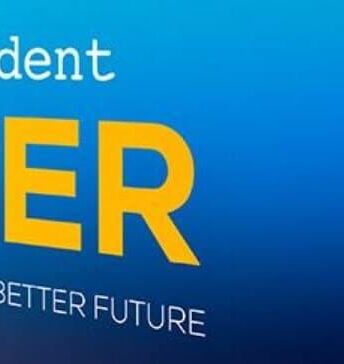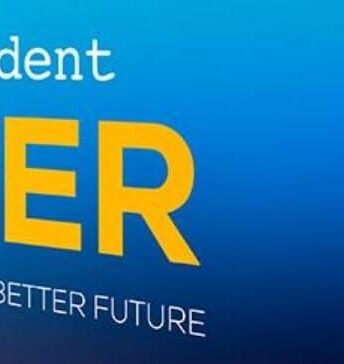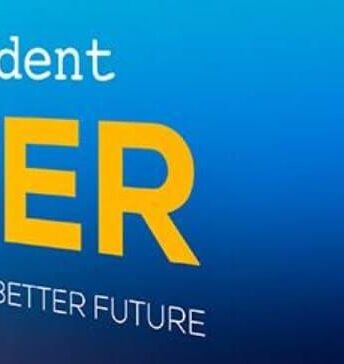In today’s job market, soft skills have become a game-changer, especially during hiring.
Whether you are preparing for an interview or thriving in your current role, mastering soft skills is crucial for standing out. For students, it’s not just about landing that first job—developing soft skills is key to long-term success and growth.
Below is a roadmap to help you elevate your soft skills and set yourself up for lasting success.
Check out this list and get started on your success strategy.
I. Set Realistic Goals for Yourself
Setting goals is key, but they need to be realistic. Are you going to sign up for 10 courses this year? Probably not, and that’s okay. When setting goals, ensure they’re S.M.A.R.T—Specific, Measurable, Achievable, Relevant, and Time-bound.
Specific: “I will improve my teamwork skills by joining a study group and actively contributing to group projects this semester.”
Why it’s Specific: The goal identifies joining a study group and contributing to group projects as ways to enhance teamwork.
Measurable: “I will enhance my communication skills by participating in at least one class discussion each week for the rest of the semester.”
Why it’s Measurable: The goal includes a clear frequency of participation, making it easy to track.
Achievable: “I will improve my time management by using a planner to schedule all my assignments and study sessions for the next two months.”
Why it’s Achievable: Using a planner is a simple and realistic method to enhance time management.
Relevant: “I will boost my leadership skills by organizing a student club meeting once a month and delegating tasks to other members.”
Why it’s Relevant: The goal is directly linked to developing leadership, a critical soft skill for both academic and professional growth.
Time-bound: “I will improve my public speaking skills by practising and delivering three presentations to my class before the end of the semester.”
Why it’s Time-bound: The goal sets a specific number of presentations and a clear deadline, making it time-sensitive and actionable.
If you’re looking to enhance your skills for an upcoming internship, set a goal to learn one new skill that aligns with your career path, such as mastering a programming language or improving your public speaking. These are achievable steps that will help you make steady progress without overwhelming yourself.
Remember, the aim is progress, not perfection. By setting realistic goals, you’re more likely to stay motivated and actually achieve them, setting yourself up for success in the long run.
II. Soft Skill Training – Yes, Soft Skills Are Totally Trainable!
Soft skills, such as communication, teamwork, leadership, and public speaking, are essential in both academic and professional life. The good news? These skills aren’t fixed traits that you either have or don’t—they’re completely trainable! With the rise of online courses and in-person workshops, there are more opportunities than ever to level up in the areas that matter most to your growth.
Benefits of Online Soft Skills Training
- Flexibility & Convenience
One of the biggest advantages of online training is flexibility. You can learn whenever and wherever it suits you, fitting courses around your busy schedule. There are a lot of platforms that can offer a wide range of soft skills courses that you can complete at your own pace, from effective communication to conflict resolution.
- Variety & Accessibility
Online platforms offer a huge variety of courses, often at a lower cost or even for free. Whether you’re looking to improve your emotional intelligence or work on your negotiation skills, there’s a course for it. You can start with a short, free course and then move on to more advanced certifications as you progress.
- Self-Paced Learning
For those who prefer to take things slow or need to balance multiple commitments, self-paced online courses allow you to go through materials at your own speed, which is ideal for busy students.
Benefits of Face-to-Face (F2F) Soft Skills Training
- Real-Time Feedback
In-person workshops provide the benefit of immediate, constructive feedback. Whether you’re practicing public speaking or learning how to manage a team, having a trainer and peers present to offer suggestions can help you improve much faster. For example, a leadership skills workshop can give you the chance to apply theories through group activities, with guidance from an instructor.
- Interactive Learning Environment
Workshops and face-to-face training sessions often involve hands-on activities, role-playing, and team-building exercises. These interactive elements are crucial when it comes to soft skills, as they allow you to practice in real-life scenarios.
- Networking Opportunities
Face-to-face sessions also provide a chance to network and collaborate with others who are looking to develop similar skills. Whether it’s connecting with classmates or professionals in a training session, building these relationships can be just as valuable as the skills you’re developing.
Face-to-Face or Online: What Makes Each Unique?
The biggest difference between online and in-person training lies in the learning experience.
Online Training: Flexible, convenient, and accessible, but may lack immediate feedback and hands-on interaction.
In-Person Training: Offers real-time feedback, interactive experiences, and networking opportunities, but requires a commitment to set schedules and locations.
III. Celebrate Your Achievements
No achievement is too small to celebrate! Every win, no matter how minor, boosts your motivation and keeps you energized. A quick celebration can remind you of your progress and keep you focused.
Celebrating doesn’t have to be extravagant. It’s about taking a moment to appreciate your effort. For instance, after finishing a tough project or assignment, treat yourself to something simple like your favorite snack, a walk, or an episode of your favorite show.
These small rewards can make a big difference in keeping your momentum. Even better, share your success with others! A quick post on social media or a message in your group chat can amplify the good vibes. Sometimes hearing “Well done!” from a friend makes the achievement feel even sweeter.
For example: wrapped up a big assignment? Celebrate with a movie night. Finished a difficult study session? Share it with your group chat! These little celebrations keep you going and reinforce that every step forward matters.
IV. Seek a Mentor and Connect with Your Peer
Finding a mentor is one of the best moves you can make in your academic and career journey. They offer advice and wisdom you won’t find in textbooks or lectures. Mentors help you stay motivated, guide you through challenges, and help you set long-term goals.
Situation: Tackling a Challenging Course You’re struggling with a particularly tough class—let’s say it’s advanced calculus or a complex research project. The lectures are intense, and you’re feeling overwhelmed by the workload.
- How a Senior Student Helps: You connect with a senior student who’s taken the course before. They offer tips on how to approach difficult topics, share study strategies, and point you to key resources, like practice exams or helpful textbooks. They even recommend which areas to focus on for the final exam, saving you hours of confusion. This guidance helps you structure your study plan more effectively, and suddenly, the course doesn’t feel as intimidating.
- How a Mentor Makes a Difference: You also reach out to a professor or mentor in the same field. They help you see the bigger picture, explaining how the course material ties into real-world applications in your career path. They might also provide feedback on your work, pushing you to think critically and sharpen your problem-solving skills. Their encouragement keeps you motivated, even when the coursework gets tough.
Benefits of Having a Mentor
- Guidance & Insight: Mentors provide valuable feedback and offer a fresh perspective on situations you may find challenging. Their advice can help you avoid common pitfalls and find the best path forward.
- Networking Opportunities: A mentor can introduce you to key people in your field, opening doors to internships, job opportunities, or industry events. These connections can be vital in helping you build a professional network early on.
- Accountability & Motivation: Regular meetings with a mentor can help keep you accountable for your goals. Whether it’s preparing for an exam or working on a project, knowing someone is there to check in on your progress can keep you motivated.
In today’s world, especially in industries like tech, having the right technical skills is crucial, but it’s often your soft skills that determine long-term success. Being able to collaborate effectively, communicate clearly, and adapt to new situations is just as important as mastering the latest coding language or software tool.
Tech Skills Get You in the Door, But Soft Skills Keep You in the Room



















